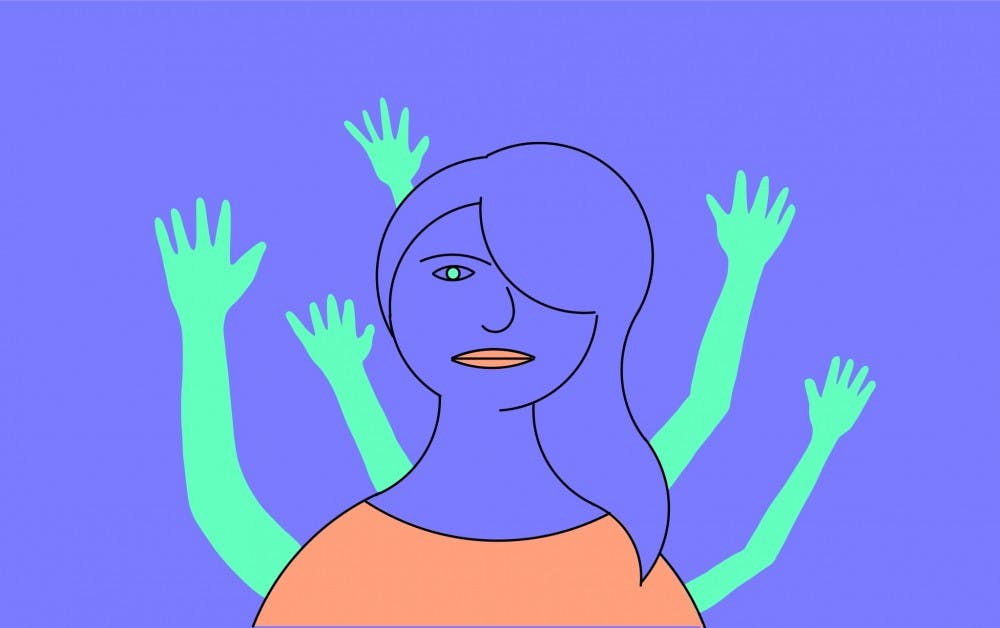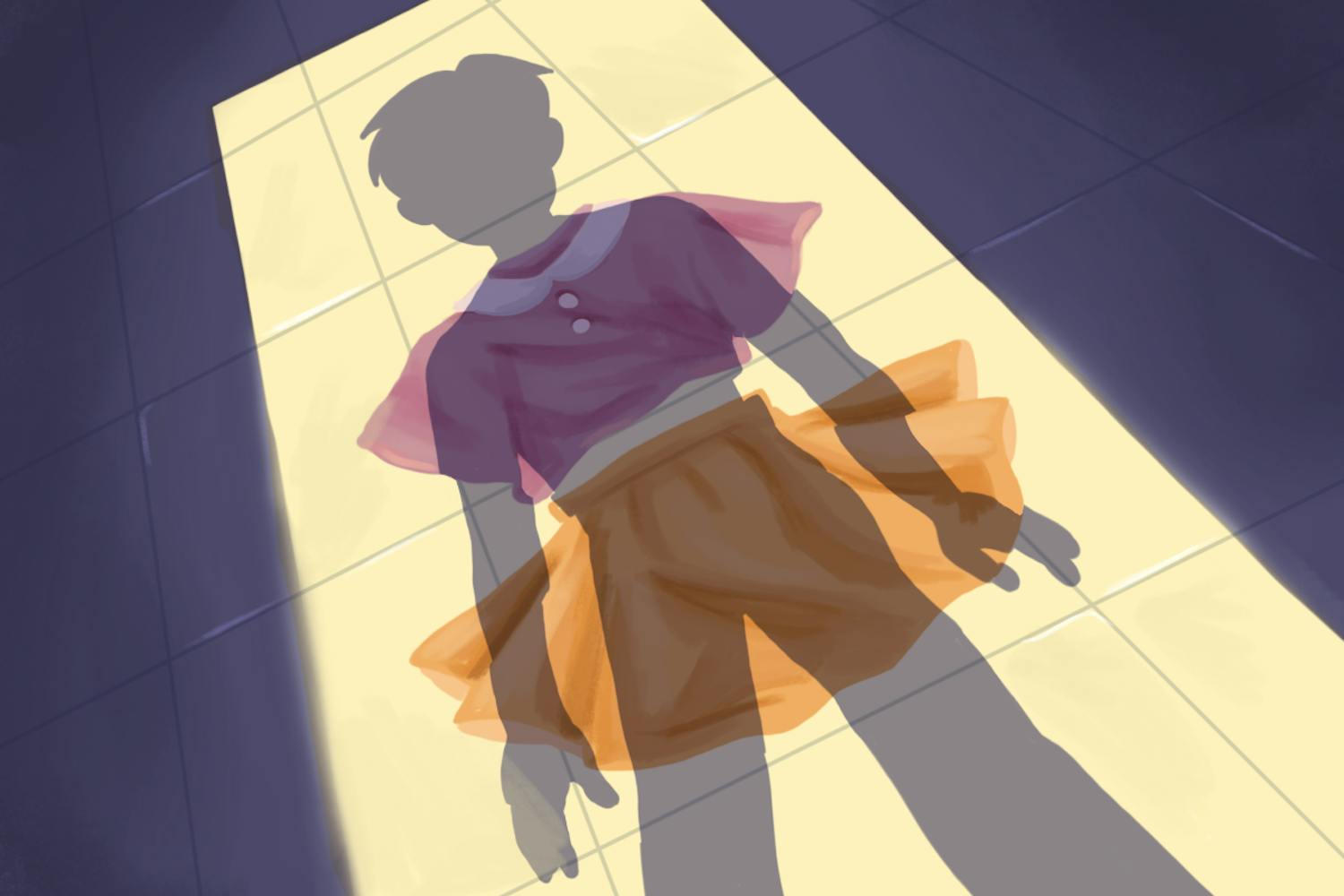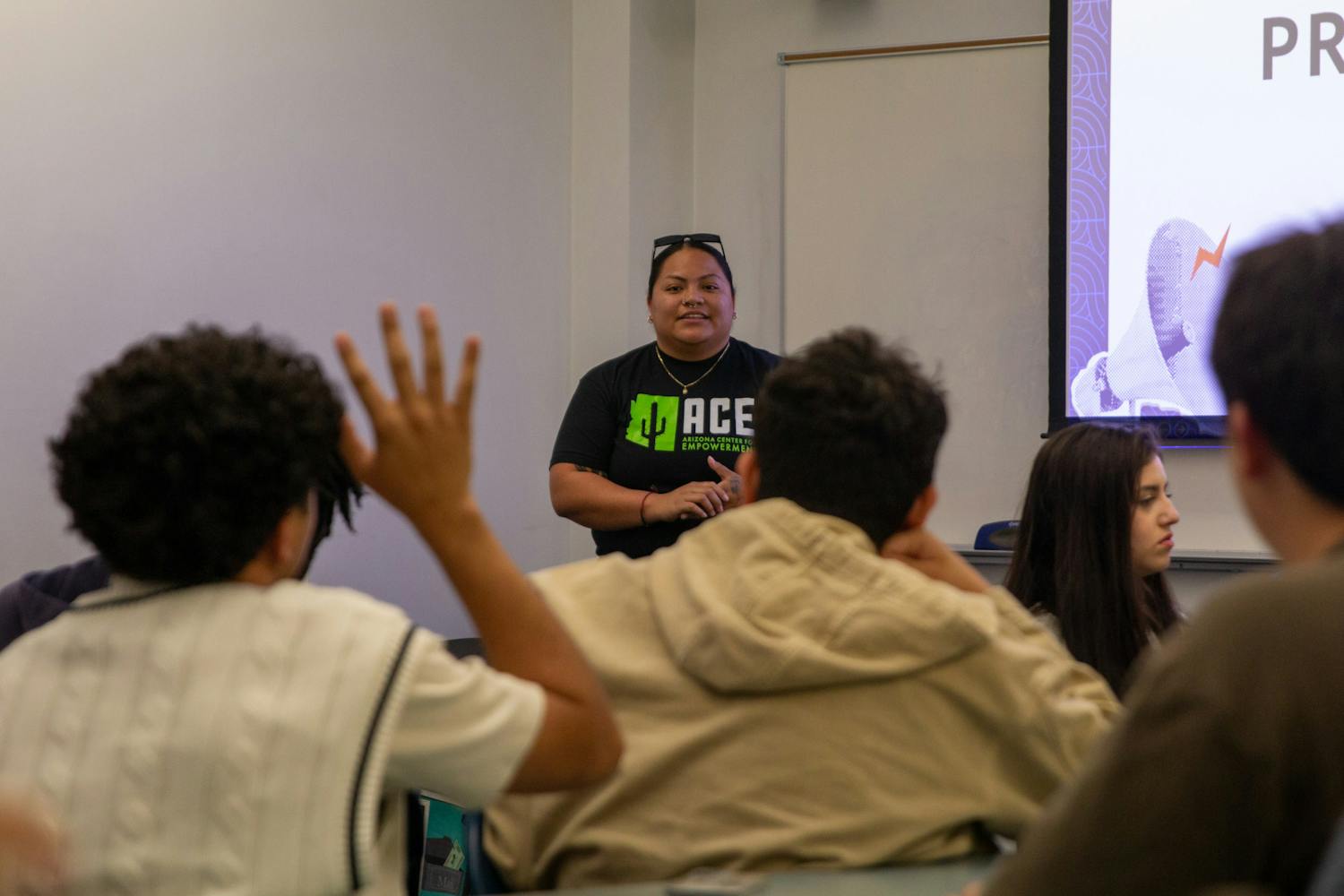For many students, college is stained by drunken nights, all-nighters, failed tests and botched assignments, but for some, the fear of being sexually assaulted is also a part of college life.
According to the Bureau of Justice Statistics' Campus Climate Survey Validation Study, one in five undergraduate college women are sexually assaulted during their time at a university.
Think about five women you know – this could be your friends, classmates, co-workers. Statistically speaking, one of them is likely to have been a victim of sexual assault.
If you've ever listened to a friend describe her uneasiness weeks after being sexually assaulted, from an outsider's perspective, it may be easy to see how the chain of events led to her victim-blaming mentality.
But "it's not a big deal" and “I didn’t really try to get out of there” are not valid reasons for college women to blame themselves for sexual assault.
Society has taught women that they should take responsibility for their actions, but that it is not necessary for men.
Kelly Davis, an associate professor in the College of Nursing and Health Innovation, conducts research on health risk behaviors including sexual violence and sexual risk.
Davis said that victims of assault often evaluate the circumstances leading up to the incident and blame themselves for not taking measures to prevent it from happening, and that outsiders often blame the victims for not doing so as well.
Additionally, many college women may consider rape their fault because they know their attacker and know the person's reputation.
Women not categorizing what happened to them as rape can have a domino effect that leads to reports of sexual assault on campus being extremely low, not because assault is not happening but because it is not being reported.
According to the ASU's 2018 report of annual crime statistics, incidents of rape occurring on campus decreased from 2016 to 2017 with 19 reported cases of rape on campus in 2016 down to 17 last year.
However, according to an estimate by the Rape, Abuse & Incest National Network, two out of every three victims of sexual assault do not report to the police.
"We know quite a bit from the literature about victim self blame and one of the things we know is that blaming yourself can often be a way of trying to regain a sense of control over the situation," Davis said. "On the one hand, it’s a good thing to try to regain the control after your control has been taken away from you, but on the other hand, if it turns into self blame than that can be very damaging."
ASU offers a variety of resources and some ASU organizations have held events, such as Denim Day, to bring awareness to the blame that some sexual assault victims harbor, but this is not enough.
ASU students need to take the responsibility of rallying behind sexual assault victims and making them feel that this is a safe space for them.
Reach the columnist at psaso@asu.edu and follow @paytonsaso on Twitter.
Editor’s note: The opinions presented in this column are the authors’ and do not imply any endorsement from The State Press or its editors.
Want to join the conversation? Send an email to opiniondesk.statepress@gmail.com. Keep letters under 500 words and be sure to include your university affiliation. Anonymity will not be granted.
Like The State Press on Facebook and follow @statepress on Twitter.




